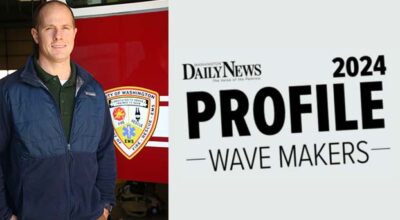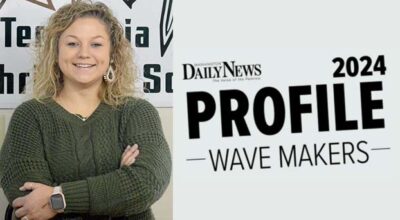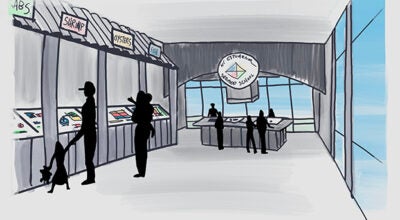City resident unhappy with budget particulars
Published 5:32 pm Thursday, May 14, 2015
Washington resident Howell Miller made it clear he isn’t happy with what he terms the city’s “tax-and-spend” budget philosophy.
Miller, a member of the city’s Planning Board, was among19 people who spoke Monday during the council’s public hearing on the proposed budget for the upcoming fiscal year. While 18 of those speakers talked about the future of the city pool, Miller was the lone speaker who talked about other budget-related issues.
“I come before you tonight to express my complete displeasure at the proposed budget for the next fiscal year. When I saw the manager proposing a one and a half cents property tax increase, well, I can’t really say what I said here in the meeting,” Miller told the council. “My first thought is, ‘Where are the spending cuts?’ Forty-four thousand dollars is not enough. Why not cut enough to offset the loss from the privilege licenses? This is like D.C. It’s tax and spend. You want to tax us and spend more money. It’s not acceptable. Why put an additional tax on the property owners?”
Although the proposed budget City Manager Brian Alligood presented to the council in mid-April called for increasing the city’s property-tax rate by 1.5 cents per $100 valuation, the council (during a budget session in late April) decided against increasing the tax rate. The increase would have raised the taxes on a $100,000 house from $500 a year to $515 a year.
The $120,000 that would be generated by increasing the property tax rate is designed to replace the revenue the city once received from issuing business privilege licenses on an annual basis. The N.C. General Assembly took that authority away from cities and towns by passing a law, which takes effect July 1.
To avoid increasing the tax rate, to pay for a 1.3 percent cost-of-living adjustment for city employees (total cost of $95,000) and add an additional $15,000 for EMS medical supplies, the council decided to increase the transfer from the electric fund to the general fund from $470,000 to $656,399. That increase in the transfer amount also covers a $76,000 “shortfall” between revenues and expenses in the proposed budget after the council trimmed about $44,000 from the proposed budget.
Alligood’s proposed property-tax rate increase of 1.5 cents per $100 valuation would have generated about $120,000. By trimming the proposed budget’s expenditures by about $44,000, which left the $76,000 shortfall. Instead of increasing the property-tax rate by a penny per $100,000 to generate enough revenue to cover that shortfall, the council opted to increase the transfer from the electric fund.
Miller said, in his opinion, the city is not managing its business in a proper manner. Miller said he’s observed city fire trucks and ambulances in the Wal-Mart parking lot or at local restaurants as firefighters/EMTs were inside buying food as an officer sat inside the air-conditioned vehicle as it burned fuel. “Why are the fire trucks and ambulances allowed to waste city fuel?” he asked. “Because somebody did not plan for their meals. This has to stop.”
Miller also said he’s seen other city employees and their supervisors take hour-long breaks at convenience stores in the mornings and afternoons.
“Why do they have to drive from wherever they’re working in the city to the Trade Wilco and waste the gas, fuel that I pay for as a taxpayer? Again, the management,” Miller said.
Instead of waiting several years and imposing a large increase in fees for city services, Miller suggested the city increase those fees by small increments on a yearly basis. “A few cents here and there would not be objectionable,” he said.
Miller also criticized the council for its proposal to increase the transfer from the electric fund to the general fund during the upcoming fiscal year. He noted the city had been decreasing that transfer in recent years.
“Now the manager and the council agree that the way to prevent a tax increase is to increase the fund transfer. I disagree with this,” Miller said. “We’re going from $470,000 to $656,000. That’s the wrong direction, gentlemen.”
Miller said he does not want the city to increase taxes or the increase the fund transfer.
“City staff, managers must find ways to cut spending and stop taxing us without management of city departments,” he said.
Increasing taxes and fees will further deter people and businesses from locating in Washington, Miller said.
The council has not adopted the budget for the next fiscal year, which begins July 1. That could occur at the council’s June 8 meeting.





